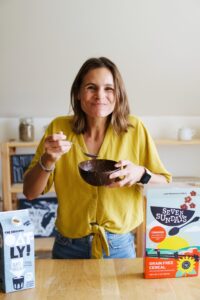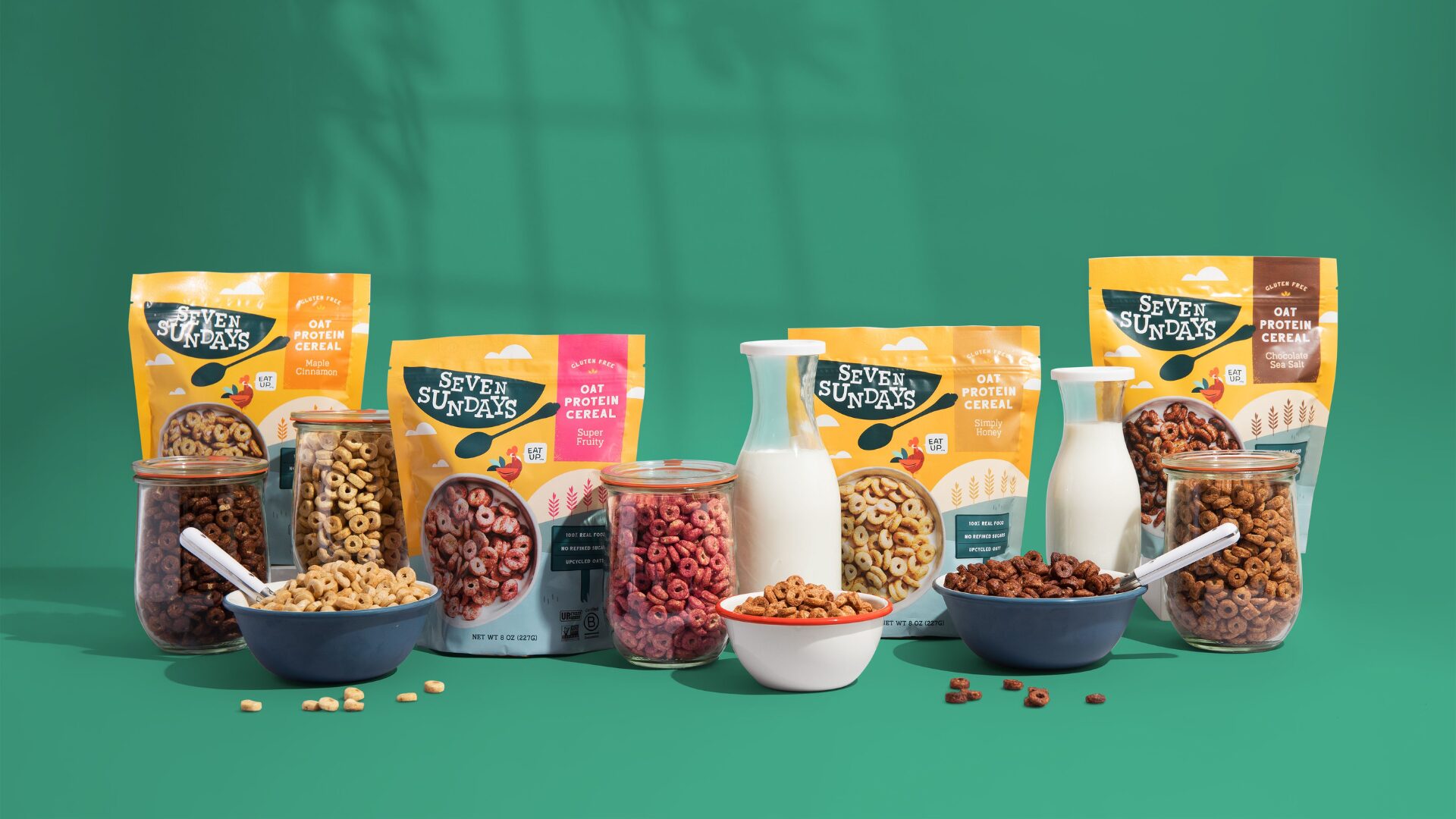Hannah Barnstable, CEO of the Seven Sundays brand, isn’t offended when people say the breakfast cereal category is dying. “I actually agree with that,” she said.
Barnstable, who founded Seven Sundays 12 years ago with her husband Brady, said cereal is “dying out. That’s what happens when three big companies fight for market share. It’s a bit of a race to the bottom. You cut corners, everyone tries to increase the profit margin.”

The positive side, according to the CEO, is that cereal still represents a huge global market valued at $39.6 billion (Grand View Research) and has a high penetration in many households.
“The concept of cereal is still very popular,” Barnstable said. “People love being able to pour themselves a bowl. It’s quick, relatively nutritious and convenient. Whole families eat it.”
The key to survival as a cereal brand today is to offer unique and healthier products, according to management at Seven Sundays, based in a suburb of Minneapolis.
“Consumers will continue to educate themselves about the foods they eat and how it affects their long-term health – Covid has catapulted this issue to the forefront,” Barnstable said.
“At the same time, Big Food is forcing quality and things down further and further. So there just has to be innovation going on.”
Seven Sundays has significantly increased its sales for three years in a row, Barnstable said, attributing this to “consumers desperately wanting something different in the (cereal) aisle.”

The Barnstables want their customers to start their mornings right, with food that will give them energy for hours. Their product labels tout “no refined sugar” and “no artificial flavors.” Seven Sundays’ cereals, like Maple Sea Salt, have a fairly short ingredient list: cassava, sunflower protein, maple syrup, coconut oil, dates, maple sugar, vanilla extract and sea salt.
According to the CEO, the brand focuses on “real food.” Of course, producing upcycled-certified granola isn’t cheap.
 “The real ingredients are certainly more expensive. The food we use to make our product is our biggest cost,” Barnstable said. “We’re not just going to pump that full of sugar to get the flavor profile. We’re going to use Medjool dates from California. … But we do value the fact that real food ultimately tastes better.”
“The real ingredients are certainly more expensive. The food we use to make our product is our biggest cost,” Barnstable said. “We’re not just going to pump that full of sugar to get the flavor profile. We’re going to use Medjool dates from California. … But we do value the fact that real food ultimately tastes better.”
Barnstable is so passionate about her work that she wakes up before 5 a.m. most days. Even after 12 years of running a brand in a demanding sector, she’s still inspired to create cereals that give you “Sunday morning vibes.”
She is happy to be able to dictate the path of her brand while General Mills, Kellogg and Quaker largely go in a different direction.
“I’m not worried about the cereal department in the long run,” Barnstable said. “We just need to get more people to think outside the box – no pun intended – to develop products that fit a newer consumer.”
The Food Institute Podcast
In the fast-paced and highly regulated world of manufacturing, especially in the food and beverage industry, maintaining strict hygiene standards is not just best practice – it is a necessity. Steve Voelzke, President of Robroy IndustriesSiemens’ Electrical Products division investigated why a holistic approach is so important and how it can significantly reduce the risk of product recalls.

